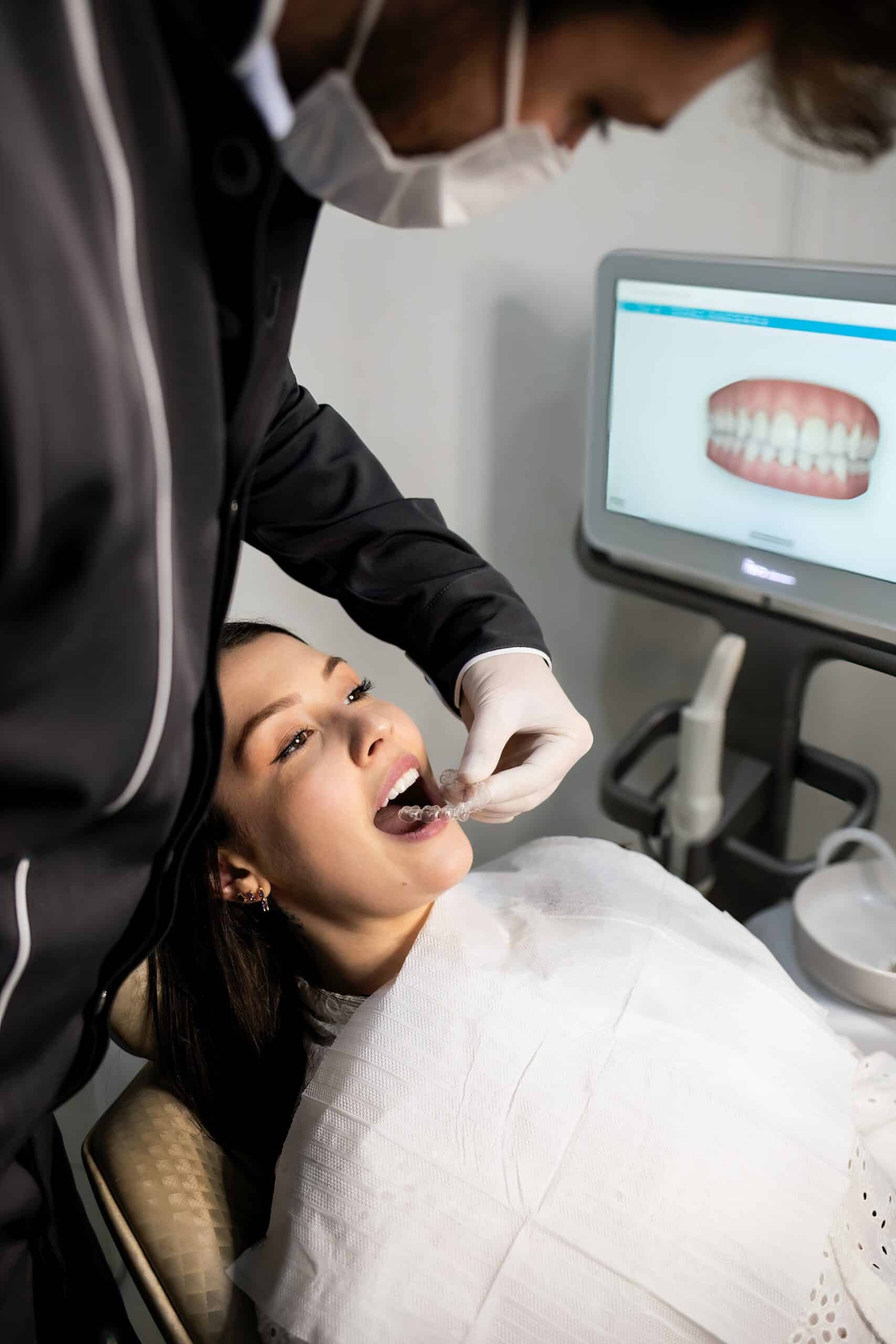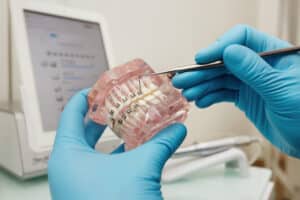Finding the Best Orthodontist Near You: Questions to Ask Before Booking
Choosing the right orthodontist is one of the most important decisions you’ll make for your oral health. Your orthodontist will guide you through months or even years of treatment, shaping not just your smile but your confidence and quality of life. With so many options available, finding the perfect fit requires more than just a quick online search.
The orthodontic treatment process is a significant investment of time, money, and trust. You’ll be visiting your orthodontist regularly, discussing your concerns, and relying on their expertise to achieve the results you desire. This relationship matters far more than you might initially realize.
Many people make the mistake of choosing the first orthodontist near you they find or simply going with the cheapest option. However, orthodontic treatment is highly specialized, and the quality of care can vary dramatically between providers. The right orthodontist will not only have the technical skills to transform your smile but will also make you feel comfortable, informed, and confident throughout the entire process.
Why Location Matters: Finding an Orthodontist Near You
Location plays a crucial role in your orthodontic experience, though it shouldn’t be your only consideration. Regular appointments are essential for successful treatment, typically occurring every 4-8 weeks depending on your specific needs. A conveniently located practice makes it easier to maintain consistent care without disrupting your daily routine.
Think about your lifestyle and schedule. Do you need an orthodontist close to work for lunch-break appointments? Would a location near your child’s school make after-school visits more convenient? Consider traffic patterns, parking availability, and public transportation options. These practical factors will impact your experience throughout the entire treatment period.
However, proximity alone shouldn’t determine your choice. A slightly longer drive to reach a highly qualified, experienced orthodontist often proves worthwhile. The quality of care, treatment options available, and overall patient experience should take priority over convenience. Many patients find that exceptional care is worth an extra 15-20 minutes of travel time.
Emergency situations also highlight the importance of location. Orthodontic emergencies, while relatively rare, do occur. Having an orthodontist within reasonable distance provides peace of mind and ensures you can receive prompt care when needed.

Top Questions to Ask Potential Orthodontists
Credentials and Experience
Start by verifying the orthodontist’s credentials. Ask about their educational background, specialized training, and board certifications. A qualified orthodontist should have completed dental school followed by additional specialized training in orthodontics. Board certification demonstrates a commitment to maintaining high standards and staying current with advances in the field.
“How long have you been practicing orthodontics?” Experience matters significantly in orthodontics, where clinical judgment develops over years of treating diverse cases. An experienced orthodontist has likely encountered situations similar to yours and can anticipate potential challenges before they arise.
Don’t hesitate to ask about their experience with your specific condition. If you have a complex bite issue or are considering adult treatment, ensure the orthodontist has successfully treated similar cases. Ask to see before-and-after photos of patients with comparable conditions.
Treatment Options and Technology
Modern orthodontics offers various treatment options beyond traditional metal braces. Ask what alternatives are available and which might be suitable for your case. Options may include clear aligners, ceramic braces, lingual braces, or accelerated treatment methods.
“What technology do you use in your practice?” Advanced technology can improve treatment efficiency, comfort, and results. Digital scanning eliminates messy impressions, 3D imaging provides better treatment planning, and modern bracket systems can reduce treatment time.
Inquire about treatment duration and what factors might influence the timeline. While estimates can vary, an experienced orthodontist should provide realistic expectations based on your specific needs.
Cost and Payment Options
Orthodontic treatment represents a significant financial investment. Ask for a detailed breakdown of all costs involved, including initial consultation, treatment fees, retainers, and any additional procedures that might be necessary. Ensure you understand what’s included and what might incur extra charges.
“What payment options do you offer?” Many practices provide flexible payment plans, accept insurance, or offer discounts for upfront payment. Understanding your options helps you budget appropriately and avoid financial stress during treatment.
Ask about insurance coverage and how the practice handles insurance claims. Some orthodontists work directly with insurance providers, simplifying the process for patients.
Practice Policies and Procedures
Understanding the practice’s policies helps set appropriate expectations. Ask about appointment scheduling, emergency procedures, and what happens if you need to reschedule frequently. Flexible scheduling can be crucial for busy families or working professionals.
“What is your policy regarding broken appliances or missed appointments?” Clear policies prevent misunderstandings and help you understand your responsibilities as a patient.
Inquire about the practice’s approach to patient communication. How do they handle questions between appointments? Do they provide educational resources? Good communication is essential for successful treatment outcomes.
Staff and Patient Experience
The entire team contributes to your orthodontic experience. Ask about staff qualifications and training. Well-trained assistants and coordinators enhance efficiency and ensure consistent, quality care.
“Can you provide references or patient testimonials?” Speaking with current or former patients provides valuable insights into the practice’s strengths and potential concerns. Online reviews offer additional perspectives, though they should be considered alongside other factors.
Consider the practice atmosphere during your consultation. Is the staff friendly and helpful? Do you feel comfortable asking questions? The environment should feel welcoming and professional.

Villa Orthodontics: A Closer Look
Villa Orthodontics represents the type of comprehensive orthodontic practice that many patients seek. When evaluating any orthodontic practice, including Villa Orthodontics, consider how they measure against the criteria we’ve discussed.
Look for practices that offer comprehensive consultations, explaining treatment options in detail and answering all your questions thoroughly. The best orthodontic practices combine clinical expertise with exceptional patient care, creating an environment where patients feel informed and comfortable throughout their treatment journey.
Modern orthodontic practices should demonstrate a commitment to continuing education and staying current with advances in the field. This might include advanced treatment options, state-of-the-art technology, and evidence-based treatment approaches.
Patient testimonials and reviews provide valuable insights into the practice’s approach to care. Look for consistent themes in patient feedback, such as clear communication, comfortable treatment experiences, and successful outcomes.
Making Your Decision: Factors to Consider
Balancing Cost and Quality
While cost is undoubtedly important, the cheapest option isn’t always the best value. Consider the total cost of treatment for orthodontics, including potential complications or extended treatment time that might result from inadequate care. Quality orthodontic treatment, while potentially more expensive initially, often proves more cost-effective long-term.
Compare payment options and insurance coverage across different practices. Some orthodontists offer more flexible payment arrangements or better insurance coordination, effectively reducing your out-of-pocket costs.
Evaluating Communication Style
Your orthodontist’s communication style significantly impacts your treatment experience. During consultations, notice whether the orthodontist explains procedures clearly, answers questions patiently, and makes you feel comfortable. Good communication prevents misunderstandings and helps you make informed decisions about your treatment.
Consider how the practice handles questions and concerns. Do they respond promptly to phone calls or emails? Is staff knowledgeable and helpful? These factors become increasingly important during months of treatment.
Treatment Philosophy and Approach
Different orthodontists may have varying approaches to similar cases. Some prioritize speed, while others focus on comprehensive correction. Some embrace new technologies enthusiastically, while others prefer tried-and-true methods. Understanding the orthodontist’s treatment philosophy helps ensure alignment with your goals and preferences.
Ask about their approach to complex cases or potential complications. How do they handle situations when treatment isn’t progressing as expected? Their answers reveal their problem-solving approach and commitment to achieving optimal results.
Long-term Relationship Considerations
Orthodontic dental treatment often extends over several years, making the patient-doctor relationship particularly important. Consider whether you feel comfortable with the orthodontist and staff. Can you envision maintaining this relationship throughout your treatment period?
Think about the practice’s stability and longevity. Established practices with experienced staff provide consistency and continuity of care. If the orthodontist is newer to the area or recently established their practice, ensure they have appropriate experience and backup support systems.
Frequently Asked Questions
How do I know if an orthodontist is qualified?
Verify that the orthodontist has completed an accredited orthodontic residency program and maintains active licensure. Board certification by the American Board of Orthodontics indicates additional commitment to excellence, though many excellent orthodontists choose not to pursue board certification.
What’s the difference between a dentist and an orthodontist?
Orthodontists are dental specialists who have completed additional training focused specifically on tooth movement and bite correction. While general dentists may offer some orthodontic services, orthodontists have more extensive specialized training and experience in complex tooth movement.
How many consultations should I schedule before making a decision?
Most patients benefit from consulting with 2-3 orthodontists before making a final decision. This provides different perspectives on treatment options and helps you compare costs, approaches, and practice styles. However, don’t feel obligated to schedule excessive consultations if you find an orthodontist you’re confident about early in the process.
Should I choose the orthodontist with the newest technology?
While modern technology can enhance treatment efficiency and comfort, it’s not the only factor to consider. The orthodontist’s skill, experience, and treatment philosophy are often more important than having the latest equipment. However, practices that invest in technology often demonstrate commitment to providing optimal patient care.
What if I’m not satisfied with my treatment progress?
Open communication with your orthodontist is essential if you have concerns about treatment progress. Most issues can be resolved through discussion and potential treatment modifications. If problems persist, you may need to seek a second opinion or consider transferring to another orthodontist, though this should be a last resort.

Your Journey to the Perfect Smile Starts Here
Choosing the right orthodontist is an important decision that impacts your dental health, confidence, and quality of life. It’s worth investing time to research, ask questions, and evaluate your options carefully. Don’t just go for the cheapest or most convenient choice—focus on factors like credentials, experience, treatment options, and how comfortable you feel with the orthodontist.
Scheduling consultations is a great way to meet potential providers, understand their approach, and ask key questions. Look for someone who combines clinical expertise with genuine care for patients, ensuring your journey is both effective and enjoyable.
Take the first step today—start your search, ask the right questions, and move closer to the smile you’ve always dreamed of!
https://www.google.com/maps?cid=10799094335138242310

